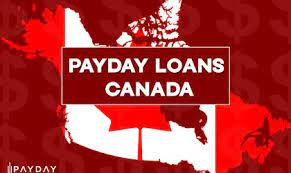Payday loans are a type of short-term, high-interest loan that many Canadians turn to when faced with unexpected financial challenges. While these loans can provide quick access to cash, it's essential to understand their terms, regulations, and potential pitfalls before considering one. In this article, we'll explore the key aspects of payday loans in Canada to help you make informed financial decisions.
- What are Payday Loans?
Payday loans are small, unsecured loans designed to cover immediate financial needs until the borrower's next payday. These loans are typically for a short duration, ranging from a few days to a couple of weeks. Borrowers often use payday loans to address emergency expenses such as medical bills, car repairs, or other unexpected costs.
- How do Payday Loans Work?
To obtain a payday loan in Canada, borrowers must provide proof of income, a valid bank account, and contact information. The loan amount is usually a percentage of the borrower's income, and the repayment is due on the next payday. Lenders may require a post-dated cheque or authorization to withdraw funds directly from the borrower's bank account.
- Interest Rates and Fees:
One of the most critical aspects of payday loans is the high-interest rates and fees associated with them. In Canada, each province regulates the maximum allowable interest rates, and they can vary significantly. It's crucial for borrowers to carefully review the terms and conditions, including the annual percentage rate (APR), to understand the total cost of the loan.
- Provincial Regulations:
Payday loan regulations differ across provinces in Canada. Some provinces have implemented strict rules to protect consumers, such as capping interest rates and limiting the number of rollovers. Others are in the process of developing or enhancing regulations to address concerns about the industry's practices. Understanding the specific regulations in your province is vital for making informed decisions about payday loans.
- Alternatives to Payday Loans:
Given the high costs associated with payday loans, exploring alternative options is advisable. Some alternatives include negotiating payment plans with creditors, seeking assistance from non-profit credit counseling agencies, or exploring low-interest personal loans from traditional financial institutions.
- Responsible Borrowing:
If you find yourself considering a payday loan, it's essential to borrow responsibly. Only borrow what you can afford to repay, and carefully review the terms and conditions. Avoid falling into the cycle of repeated borrowing, as this can lead to a cycle of debt that is challenging to break.
Conclusion:
While payday loans can provide quick access to cash in emergencies, they come with high costs and risks. Understanding the regulations, interest rates, and fees associated with payday loans in Canada is crucial for making informed financial decisions. Exploring alternative options and borrowing responsibly are key steps in managing financial challenges without falling into a cycle of debt.


No comments yet